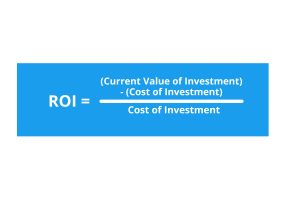
How to Start Your Own Construction Business in 2021
Chances are, if you’re reading this, you aren’t quite sure how to start a construction company. Starting a construction business, as with any sort of business, is not a very simple process. But if you’ve already come up with construction business ideas, rest assured that you haven’t wasted your time – it’s worth pursuing. Here, we tell you how…
Construction stats to get started:
Consider this: according to the US census, there are close to 700,000 firms that make up the construction industry, and employ over 5 million people. And, although the 2008 Great Recession certainly took its toll on the construction sector, there has been an upward trend which is projected to continue for the foreseeable future.
According to the Fails Management Institute, in 2006 the construction industry made up approximately 8.5% of GDP. As a result of the Great Recession though, construction dropped to roughly 5% of GDP in 2011. But (here’s the good news) the rebound that has been occurring over the past 8 years has been strong and steady – today construction constitutes about 6.5% of GDP.
Likewise, Statista finds that spending on construction was valued at $788 billion in 2011 and jumped to $1.23 trillion in 2017 – that’s an increase of more than 150% over a span of 6 years! That trajectory is expected to continue, with spending on construction predicted to exceed $1.5 trillion by 2022.
All of this is great news for anyone looking at starting a building company – but you may still be at a loss as to how to start a construction company.
We deconstruct the steps involved in starting a construction business to help you nail it the first time around. Keep reading to learn more…
What to expect when starting your own construction company:
Are there some unique challenges that come along with drawing up a construction company business plan? Yes. But that doesn’t make it impossible.
There are a number of hurdles that construct business owners, new and old, should expect to be confronted with (getting construction business financing is just one). We’ll break it down for you here so that you won’t be surprised when designing your construction business plan.
One important note: Of course, the type of business will affect the kind of industry loans a business needs, as well as the specific circumstances that business finds itself in. Be sure to weigh your options carefully in order to choose the right funding solution for your business.
Challenges that new construction business owners face:
1. High cost of insurance
With the wide array of risks that naturally arise in the construction industry – injury to workers, damage to or loss of equipment, property damage/faulty workmanship claims, natural disasters, and so on – insurance is a no-brainer. But the cost for construction insurance can be astronomical if you go about it the wrong way.
The best strategy to minimize the cost of construction business insurance is:
- Combine coverage under one policy instead of keeping several policies open at once
- Review policy annually to check for money-saving changes
- Avoid allowing coverage to lapse (make your payments on time and don’t cancel your policy, even if it’s just for the off-season)
2. Poor safety training
For new construction companies specifically, training staff on safety protocol is one of the bigger challenges. The fact is, when the pressure is on, safety may be placed on the backburner in order to get a project done on time. And even riskier is the bad habit of hiring staff that simply hasn’t had the safety training that is necessary to conduct reliable and secure work.
Poor safety training can result in going over the budget, passing the due date, or (even worse) injury to employees. Successful construction businesses avoid cutting corners and finding shortcuts, and focus on safety awareness.
Besides putting staff through a formal safety training program, also make sure to:
- Only hire staff that recognize and appreciate the importance of working safely
- Reinforce the message by providing staff with a clear definition of risks
- Hold regular meetings that address dynamic dangers on the job (weather hazards, accessibility issues, landscape complications, etc.)
3. Lack of planning
One of the biggest obstacles for construction business owners is having unclear plans and goals for their company and for their projects.
You won’t want to go about starting a construction business without a solid foundation of the finances, the operations, the marketing strategy, and so on. Likewise, you won’t want to start a construction job without calculating the costs, organizing the resources, scheduling the steps and stages, defining the deadlines, etc.
They say that two heads are better than one, but in the construction industry that truth doesn’t always hold up. Planning issues often come as a result of clients changing their minds or forgetting what their requests were originally. Other times the project manager may fail to prepare a contingency plan in the event that unforeseeable pitfalls came about (severe weather, budgetary shortcomings, scheduling conflicts, etc.).
How to avoid planning pitfalls:
- Communicate frequently and clearly with clients and employees to ensure everyone is in sync
- Document any/all changes to guard against communication failures
- Open a builders risk policy and faulty workmanship coverage to limit your business’s liability
4. Unrealistic expectations
Hopefully you’re feeling optimistic in your endeavor to put your construction business plan into action. But it’s important to stay grounded and not allow your expectations to become too lofty.
Raw materials may be costlier than anticipated, or the client may push for a deadline that isn’t practical. Unrealistic expectations will add unneeded challenges to your construction company business plan, and can also be a drag on your workers’ productivity. If the goal doesn’t appear achievable, the incentive for workers to put their full effort may suffer as a result.
Keeping it real:
- Review industry standards and get an idea of average timelines for types of projects
- Don’t be pressured into agreeing to impossible requests made by stakeholders
- Plan for foreseeable growth and keep track of it so you’re prepared for when lots of jobs come pouring in and for when new projects are lacking

Challenges that established construction business owners face:
1. Shortage of skilled workers
Out of the number of challenges that construction business owners face, a lack of professional help may be the biggest of all. Every year roughly 70% of high school graduates enroll in a college or university, which means a lot less people are going on to study a vocation such as carpentry, masonry, plumbing, or electrical work.
According to Associated General Contractors of America, 80% of contractors report having difficulty finding quality workers to hire – that means more than 250,000 positions are left open.
Alternative ways to find skilled construction workers:
- Become a mentor
- Offer internship positions
- Use a recruitment agency
2. Adopting new technology
With the great high tech advancements made in recent years, it should come as no surprise that the construction industry has begun using new cutting edge hardware and software.
For old school construction business owners though, it may be hard to see the value of adopting new technology.
Recent innovations in construction tech include:
- Management software
- Drones to survey work sites
- Wearable technology to monitor productivity
- 3D printing
- Prefabricated structures
- Solar energy
While advanced tech itself can make construction work easier and more cost-effective, it poses a big problem for those construction business owners who still believe that “if it ain’t broke, don’t fix it”.
The solution is simple: Get the new technology and start using it.
3. Changes in laws & regulations
Construction business owners that have been around for a while may have the false impression that they’ve learned all of the ins and outs of the industry. But the reality is that regulations at the federal, state, and even the city level are frequently updated and altered. Those laws range from environmental and safety regulations to license and permit requirements.
Operating by the books may mean additional expenses, but if you’re left in the dark when it comes to regulatory changes you may face unexpected fines which can impact your ability to complete a project, as well as your reputation.
How to stay up-to-date on construction laws & regulations:
- Sign up for Google alerts
- Subscribe to newsletters and blogs
- Communicate with other local businesses
4. Budgeting time
Running a construction company involves lots of separate operations that must come together in an orderly manner. In many cases that means squeezing a lot of work into a very short period of time, and doing so without going over the financial budget.
As unexpected issues come up throughout a project, even more stress is added to the process of sticking to the schedule.
Use these solutions to help you budget your time:
- Procore is an all-in-one construction management software that “helps construction professionals manage risk and build quality projects – safely, on time, and within budget.”
- HubStaff is an employee time tracking software that incorporates GPS tracking, team scheduling, and productivity monitoring to optimize your use of time
While it’s important to recognize the different challenges that new and old construction businesses face, one obstacle that is common to both is construction business financing. We’ll dig into that more below.
Expected returns for construction companies:
Return on investment (ROI) is a calculation that is used to assess the efficiency of an investment. More specifically, ROI aims to measure the level of return on an investment in relation to the cost of said investment.

There’s no fixed target when it comes to ROI since different investments will have different standards. For example, the average ROI for the construction of a commercial office building might be 3%, and perhaps the expected ROI for the construction of a below-ground swimming pool is 10%. These numbers are to illustrate a point and may not be completely accurate.
The bottom line is that since different jobs will have different demands and requirements when it comes to timing and materials, you shouldn’t aim to have a universally expected ROI. Instead, the goal for construction businesses should be to earn a higher ROI than the projected ROIs of alternative investments.
Fun fact: the top 25% of contractors make approximately 40% return on their invested working capital. But don’t feel pressured to reach that bar, at least not right away. It takes a lot of care to organize your construction business financing to get to a 40% rate of return on investments.
Starting a construction business: Step-by-step guide
You’ve done the market research, chosen your business name, drafted your business plan, and you’re ready to get the wheels turning. Here’s what comes next:
1. Register your business
There are a lot of laws and rules that need to be taken into consideration when starting a construction company. You’ll have to research what types of licenses and permits are required (more on that below), and which registration forms you’ll need to fill out. The required documents will vary according to location.
Another part of registering your construction business is deciding what sort of entity you wish to register as.
Maybe you’re starting a construction business on your own and want to keep it a sole proprietorship. Or perhaps you plan on going into business with a partner, in which case you’d register as a partnership. You should also consider registering as an LLC to benefit from the more flexible tax options it can offer your business.
2. Get tax IDs (federal and state)
The same way you use your social security number when filing your personal tax returns, when you’re starting a construction business you’ll need to obtain what is known as an Employer Identification Number (EIN).
You’ll need a federal EIN in order to:
- File tax returns
- Pay employees
- Open a business bank account
- Operate as a corporation
- Use a Koegh Plan
On the other hand, applying your construction business for a state tax ID number may or may not be necessary depending on your state’s laws. Generally speaking, state tax ID numbers are required by some states in order to file taxes and hire employees. Check your state’s government website for more info.
3. Obtain licenses and permits as needed
Depending on what sort of projects your construction business is involved in, and which state you operate in, you may need several licenses and permits or perhaps none at all. The differences state-by-state vary greatly.
Make sure to do your due diligence by visiting state government websites or calling the Department of Labor to find out which licenses are required in your state.
4. Open a business bank account
After you’ve obtained an EIN and all of the necessary licenses, it’s time to open a business bank account. One of the biggest benefits that comes with opening a business bank account is the ability for customers to pay you with their credit or debit cards. This adds a level of professionalism and a layer of security for you and your clients.
It’s worth mentioning that you don’t necessarily need to open a business bank account at the same branch, or even the same bank, that you have your personal bank account.
Shop around and see which banks offer:
- The highest interest rates for savings accounts
- The lowest interest rates for lines of credit
- The cheapest transaction fees
- No early termination fees
- No minimum account balance fees
5. Apply for insurance
With all of the dangers inherent to the construction industry, it’s absolutely necessary that you make sure you insure your construction business. Most construction companies will obtain general liability insurance to be prepared in the event that accidents or injuries occur on the job.
On any day, a worker can slip and fall or a tool can malfunction and cause injury. Whether it’s a result of bad luck or of bad practice, you’ll need to be covered in case unfortunate issues arise.
If you’re starting a construction business that will be using heavy machinery and/or vehicles, be sure to also purchase coverage for those assets. Additionally, if you aim at hiring employees to work for your company exclusively (as opposed to freelancers or sub-contractors), you’ll need workers’ compensation, unemployment, and state disability insurance.
6. Establish your headquarters
Besides aiming to be in a location where you’ll get enough business, you should consider tax rates, zoning laws, and other regulations that may come into play when choosing where to set up shop. Of course, you should also look to establish your headquarters in an area where the rental rates and property values won’t break your budget.
7. Hire staff
You can’t do it all by yourself! Starting a construction business means hiring professional help, and there’s a lot to know about that process.

According to the SBA, construction companies typically hire:
- Subcontractors
- Exclusive employees of the company
- Labor brokers
- Independent contractors
Be sure to look up all of the labor laws, required employee benefits, optional employee benefits, etc., outlined by both the federal and state governments. Not abiding by those regulations can result in lots of fees and perhaps worse.
8. Explore financing options
This has got to be one of the most important steps to starting a construction company. How are you supposed to get anything done without the funds to keep the gears in motion?
There are many ways to obtain financing for your construction business – you no longer need to depend solely on big banks to get funded. Traditional loan providers often make it very difficult to get approved for construction business loans.
Become offers a service that not only makes the entire process of applying for a business loan easier and quicker, but also improves the odds of getting approved.
By using advanced algorithms, Become makes it possible to get financing for your construction company in as little as 3 hours – that’s a big difference from the weeks that it usually takes when applying through a bank!
So whether you’re looking to obtain equipment financing, an unsecured business loan, or a business line of credit, take the faster and simpler route and use a digital lending service such as Become.
Final words
Nobody said that starting a construction company was going to be simple, but with the right support you’ll be able to build yourself a successful business in no time. Now you know what to expect, and you know how to go about this big endeavor without getting bumped and bruised along the way.
To wrap it up briefly:
- Make sure to research the requirements and standards in your industry
- Keep your expectations realistic
- Stay up-to-date on new technology and new statistics
And most importantly – don’t forget to ask for help when you need it!




